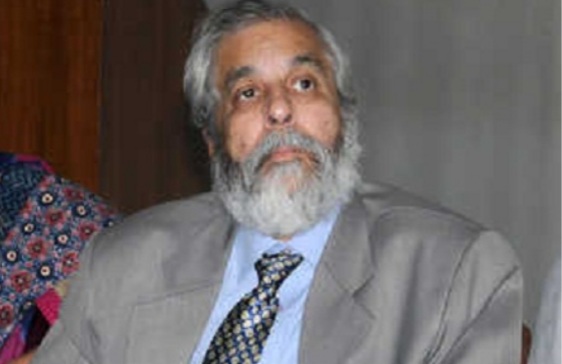By Special Correspondent
New Delhi : Justice Madan B. Lokur, a former Supreme Court Judge, voiced his great worry on Thursday about the Supreme Court’s ‘inaction’ in response to the hate assembly’s calls for genocide against Muslims in Hardiwar in December17-19,2021.
He underlined that a call for genocide is the same as genocide itself, according to Article 3 of the Genocide Convention, to which India is a signatory.
In a forceful and outspoken interview, Justice Lokur, said he is “terribly disappointed” the Supreme Court has not taken cognizance of the calls for genocide.
The Supreme Court, according to Justice Lokur, should have intervened promptly and has both a legal and moral obligation to do so. A call for genocide is judged to be the same as genocide itself, according to Article 3 of the Genocide Convention, to which India is a signatory. As a result, India has committed genocide under the Convention, making the Supreme Court’s silence and lack of action all the more perplexing and troubling.
Justice Lokur said in a 17-minute interview with Karan Thapar for The Wire that even if the chief justice didn’t want to act suo moto, which he could and should have done, he should have acted after receiving a letter from 76 lawyers, including a former law minister, requesting the Supreme Court’s intervention.
When asked what the Supreme Court’s taking cognizance would entail, Justice Lokur responded that the court must first ask the government, both at the state and federal levels, what it is doing and give them no more than 24 hours to respond. Following that, the court should order a new and thorough inquiry to be conducted in a short period of time. Third, the court must demand that those who called for genocide be apprehended and “placed behind bars,” as Justice Lokur put it.
When calls for genocide are made, Justice Lokur believes the Supreme Court has both a legal and moral obligation to respond. He explained that the court is known as “the sentinel on the qui vive,” which means it guards against any breach of fundamental rights. The demand for genocide is unmistakably a violation of basic human rights.
Justice Lokur questioned why the court had not acted even four days after reconvening after the New Year’s vacation. Indeed, he claimed, the Supreme Court should have responded to the letter from 76 lawyers as soon as possible, if not earlier on a sue moto basis.
It is worth mentioning here, besides 76 lawyers’ letter, former Union minister Prof Saifuddin Soz, Jamiat Ulama-e-Hind (M) and others also wrote letters to the Chief Justice of India on the hate matters.
Justice Lokur concurred with a point made by Rekha Sharma, a former judge of the Delhi high court, in an article in the Indian Express that each Supreme Court judge has the power as well as the obligation to intervene in this case, and that they do not have to wait for the chief justice to do so. He also agreed that this meant that none of the Supreme Court’s 30 judges has deemed it appropriate to take cognizance of cries for genocide and act. He agreed that the situation is really troubling.
Finally, when asked what would happen if the Supreme Court failed to intervene and take up this case, Justice Lokur remarked it would be “a dreadful scenario.” We’d be “heading for trouble” in those circumstances, he warned



 Google News
Google News
[…] Madan B. Lokur, a former Supreme Court Judge, criticized the Indian Supreme Court for its complete failure to take any sort of legal action regarding the Haridwar hate speech […]
It is only beating in the bush.
Atleast he is beating in bush, what we are doing nothing simply sitting